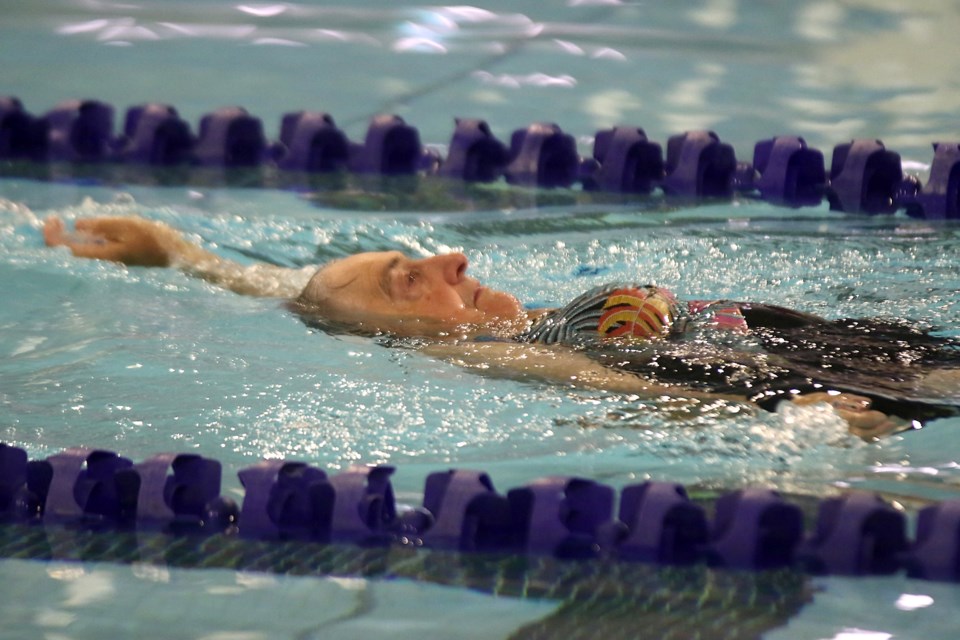THUNDER BAY – A pilot program offering discounted access to public transit and city recreation facilities for low income residents has won tentative approval from Thunder Bay’s city council, though only by a one-vote margin.
The proposed three-year "affordable access" pilot is intended to examine the impact of subsidizing access to those services for those living in poverty.
The pilot would offer monthly transit passes at half price, and/or credits of $350 a year at city recreation facilities, to up to 250 residents living below Canada’s low-income cut-off (around $22,800 a year for a single person, or $42,300 for a family of four).
On Monday, some councillors said the pilot’s estimated $231,500 yearly cost was too high for a program with uncertain benefits, and argued the city is already doing enough to address poverty.
While the program was narrowly approved, its cost will be up for debate again during the 2023 budget process, after a new council is elected on Oct. 24.
Mayor Bill Mauro, who has often argued the city does more than its share on social issues, said he couldn't defend more spending on transit.
“I’m not comfortable always having to be somebody who says no to these things, but I will say no to this,” he said. “I know it’s well-intentioned… but how do you not think about the people in this city who are earning $30,000 or $40,000 a year, who own a car because they need a car and can’t live without a car?”
“I’m supportive of transit, but let’s be fair… I don’t know if it’s 5 or 10 per cent of people in the city who use transit, and we tax support that program to the tune of about $12 million."
Coun. Brian Hamilton agreed, saying council should wait to endorse the program until the 2023 budget process, which he predicted will include tough choices.
“Transit is quite affordable and is subsidized massively,” he said. “We’ve done an incredible amount of work on transit. I’m just loathe to spend money we don’t have, when we don’t have any idea what this next budget is going to look like.”
“Doing stuff for our underprivileged is extremely important, but there are probably hundreds of organizations in the community already doing a lot of this work, and I'd argue a lot of them are getting increased funding post-pandemic as well.”
Coun. Aldo Ruberto disagreed.
“There’s a lot of programs to help people, and that’s a good thing,” he said, “because the most vulnerable people need help. We’re doing everything we can as a council – I know sometimes we say we’re doing too much… I know sometimes we get tired of opening up our wallets and giving money out. But it’s part of what we do as a community.”
Director of recreation and culture Leah Prentice noted the city already offers subsidies on request, but said awareness and uptake of that policy are limited.
“In recreation and culture in particular, we have a corporate policy on the books that mandates us to ensure access to our services," she said. "Right now it’s a very general statement – it’s in every issue of The Key, for example, if you require subsidy to access a recreation program, call the relevant supervisor.”
Several other municipalities run similar access programs, she noted.
The pilot is set to begin in July 2023 and would support adults who can’t already access other supports.
Applications for the pilot would open on a first-come, first-serve basis. Residents could apply for support with transit, recreation, or both as part of the same process, which would be administered by the Lakehead Social Planning Council (LSPC).
The city would pay the LSPC $24,000 a year to administer the program.
Administration would report to council annually on the pilot starting in 2024.
Prentice said both the amount of interest in the program and its effects on participants will be evaluated.
“We’re very curious to see what that participation rate looks like,” she said. “But I’m also hopeful we’ll be able to get at some qualitative success measures – what impact is this program having on participants, their life, their household, their well-being?”
In a report, staff said program goals include allowing participants to allocate more of their budget toward basic needs like food and child care, and improving wellbeing by expanding opportunities to access education, work, medical care, and social connections.
The recreation subsidy would be available to residents 18 and older, except those already receiving support through similar programs like PRO Kids, while the transit subsidy would be open to residents aged 25 to 59.
Transit manager Brad Loroff said the pilot builds on other recent steps like expanding free rides to children 12 and under and raising the age cap for discounted youth passes.
“That was all an effort to provide more travel incentives and access opportunities for youth,” he said. “What this exercise does is make a pointed effort to provide some relief for specific adults who may be in need of some assistance.”
Couns. Ch’ng, Foulds, Fraser, Johnson, Ruberto, and You voted in favour of the affordable access pilot. Couns. Aiello, Giertuga, Hamilton, McKinnon, and Mayor Mauro voted against.
